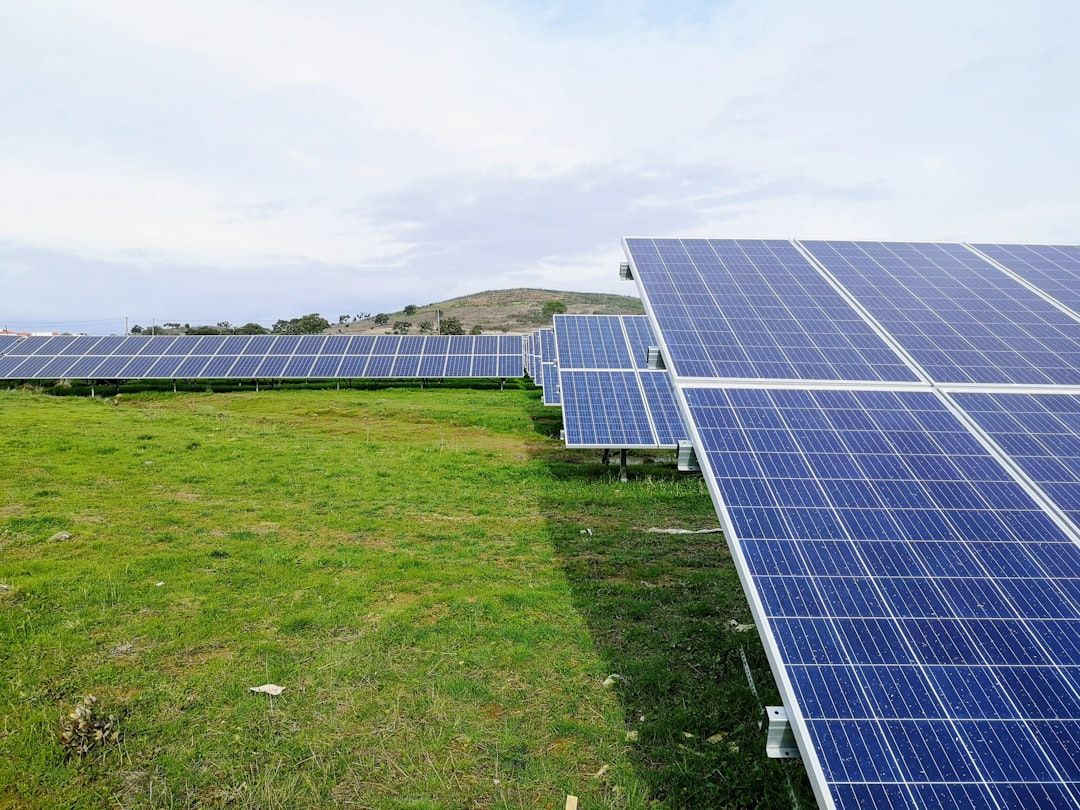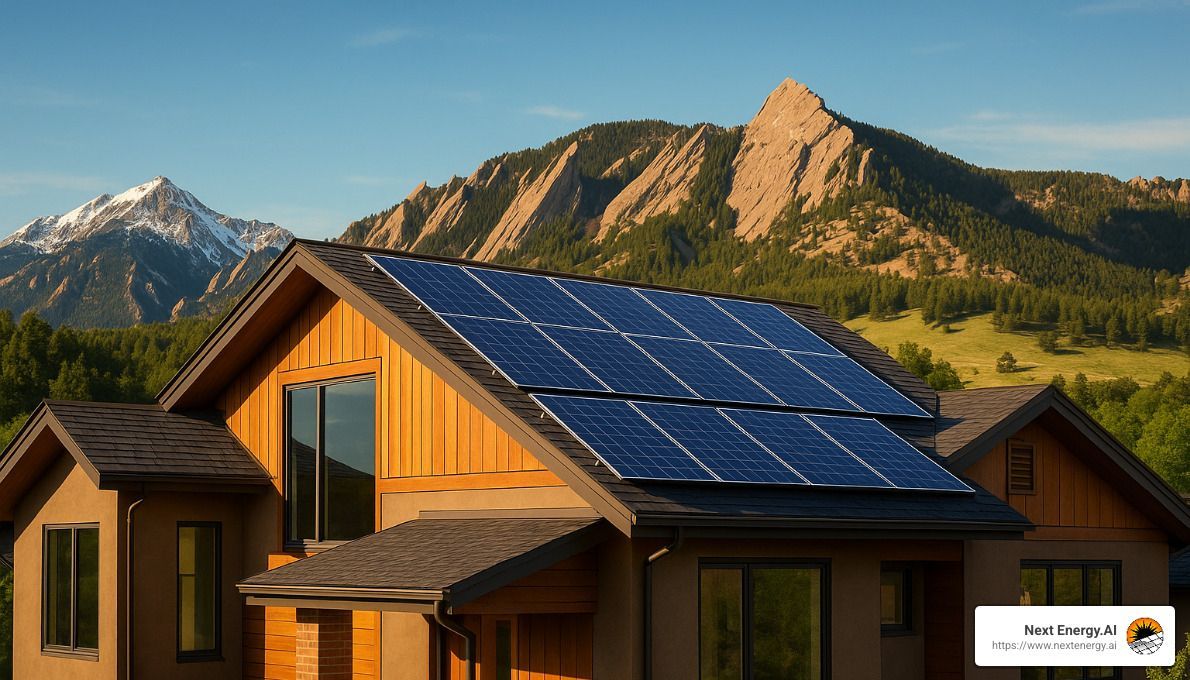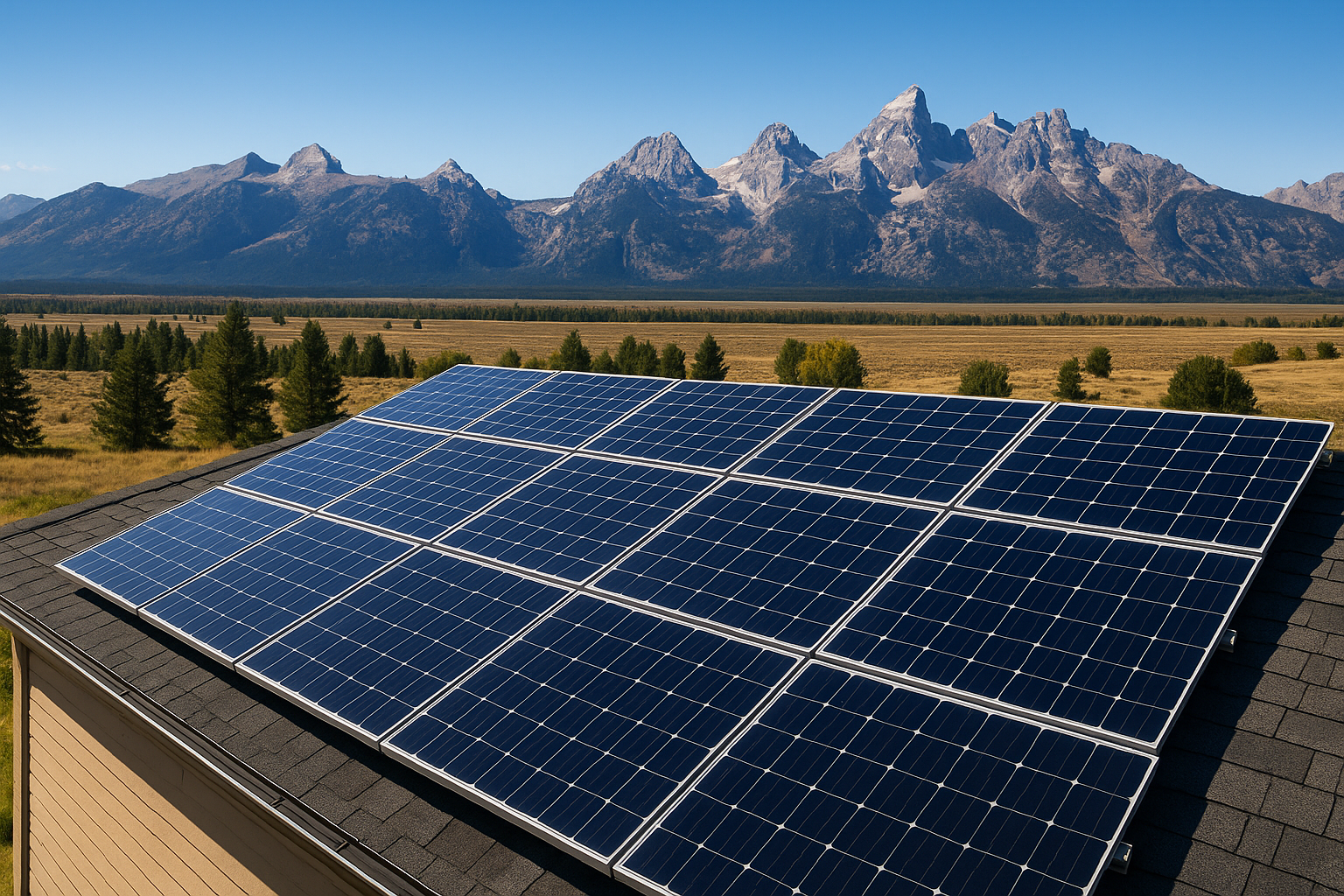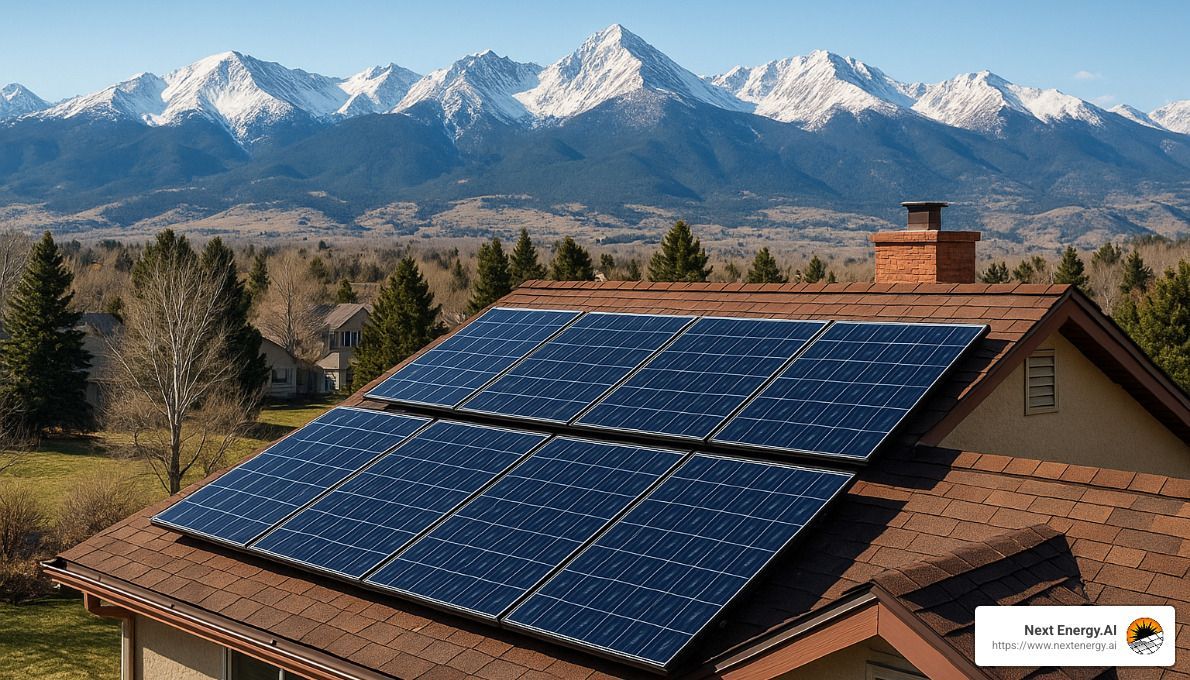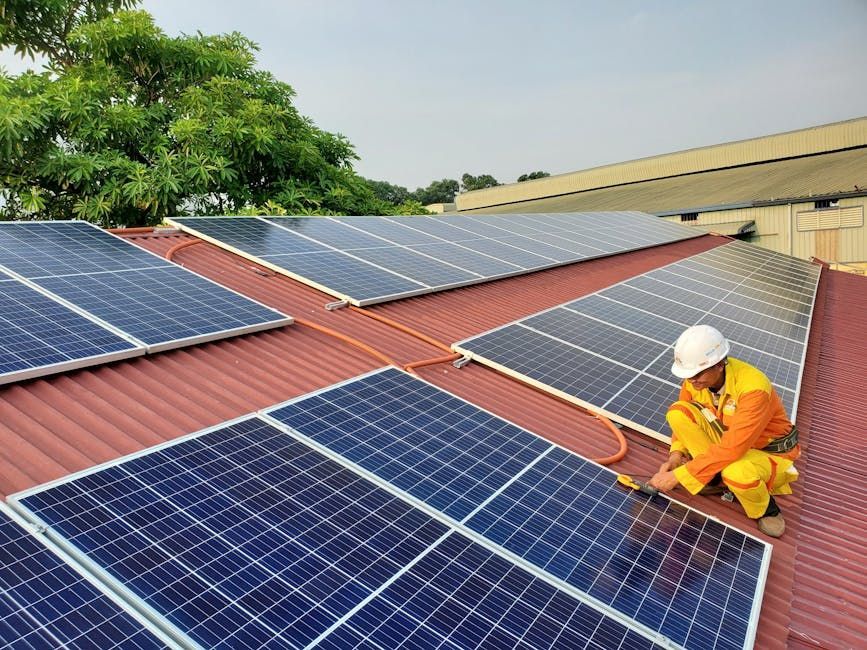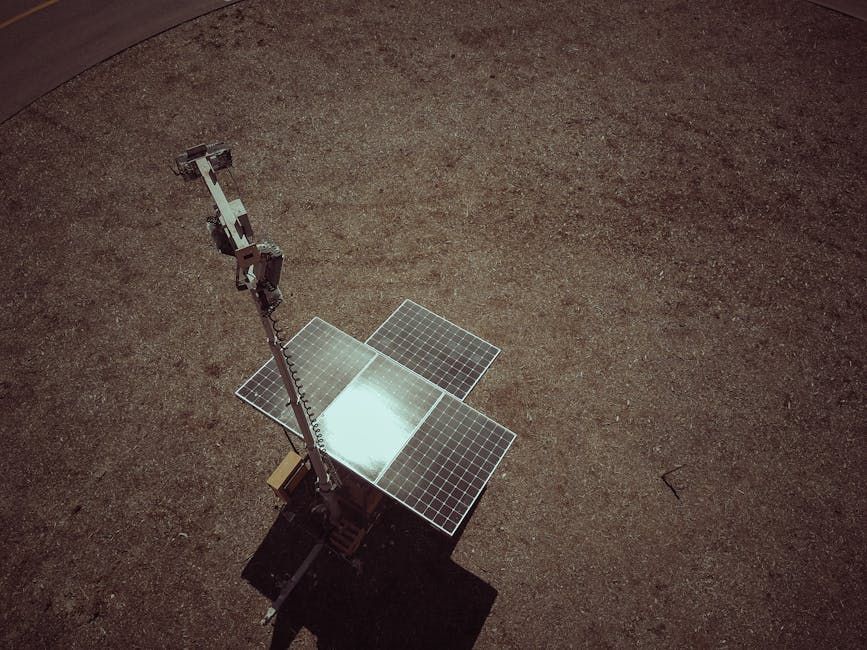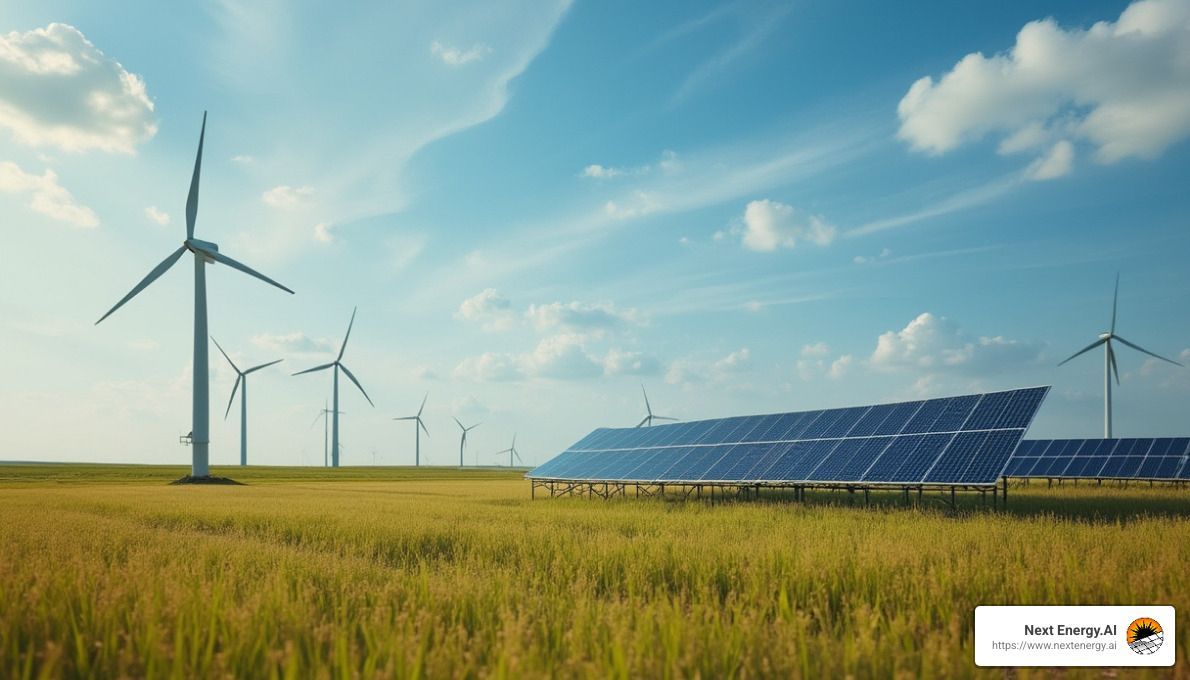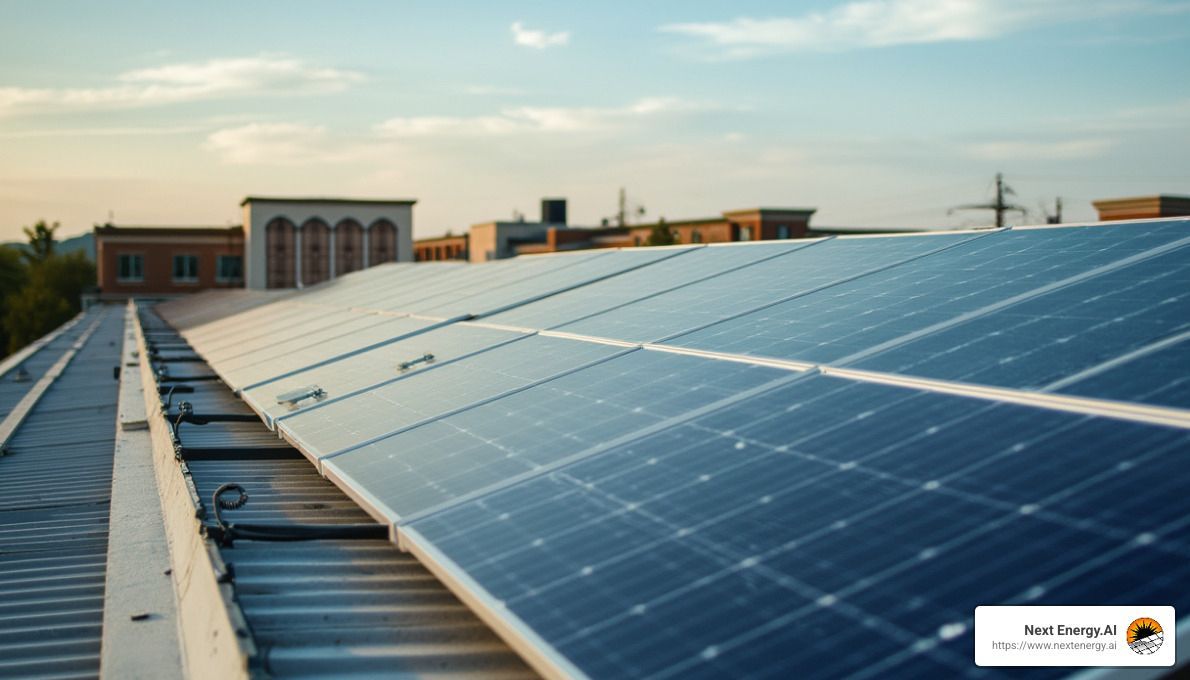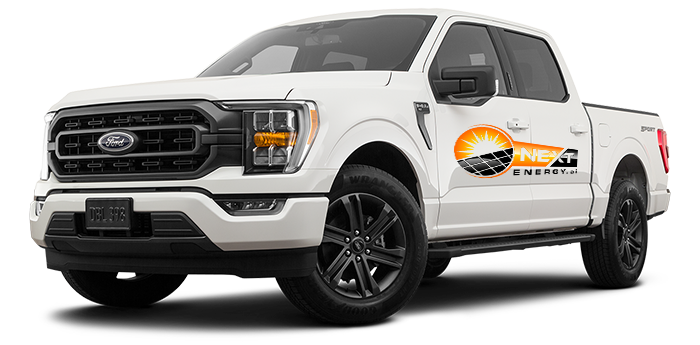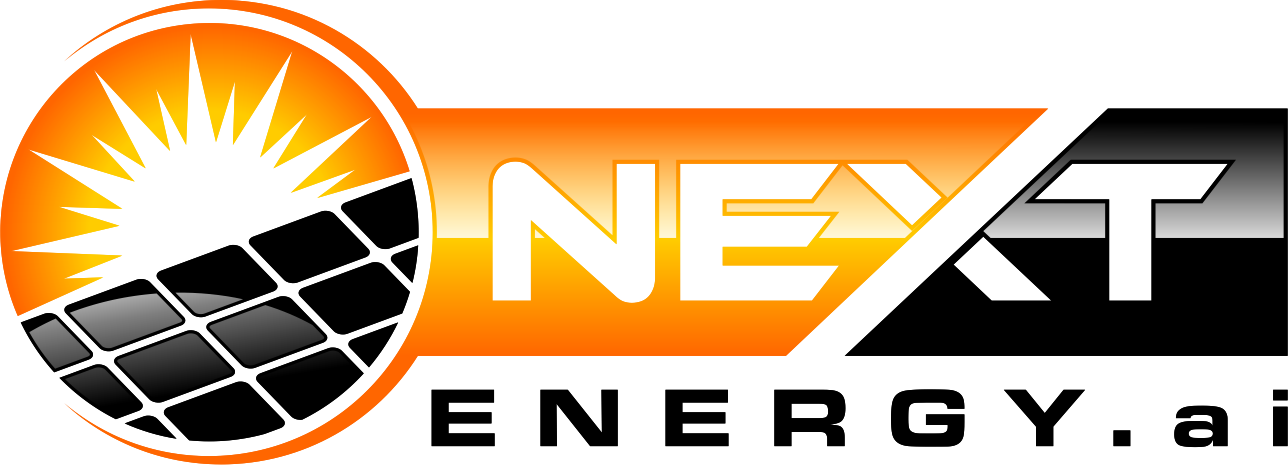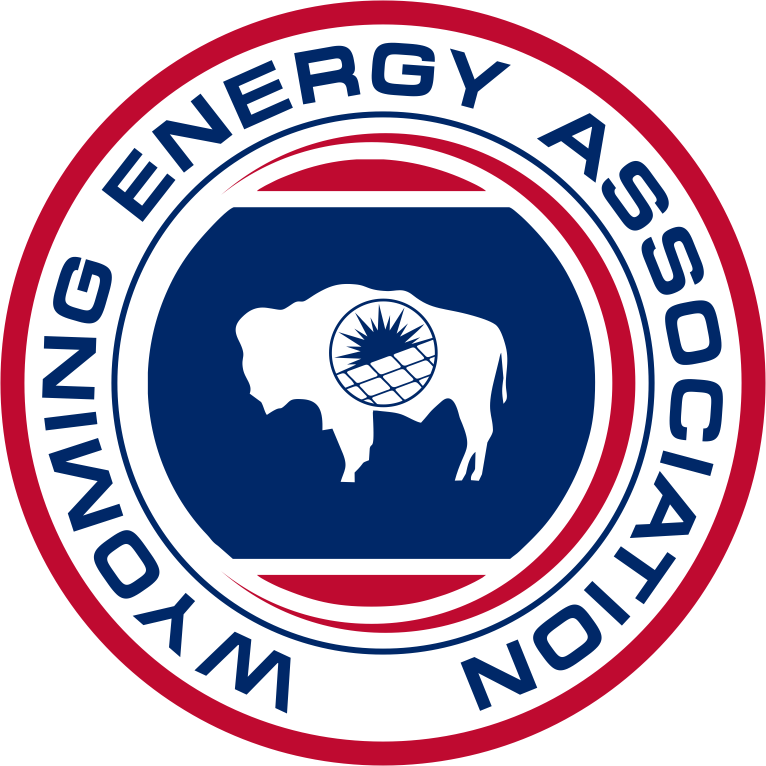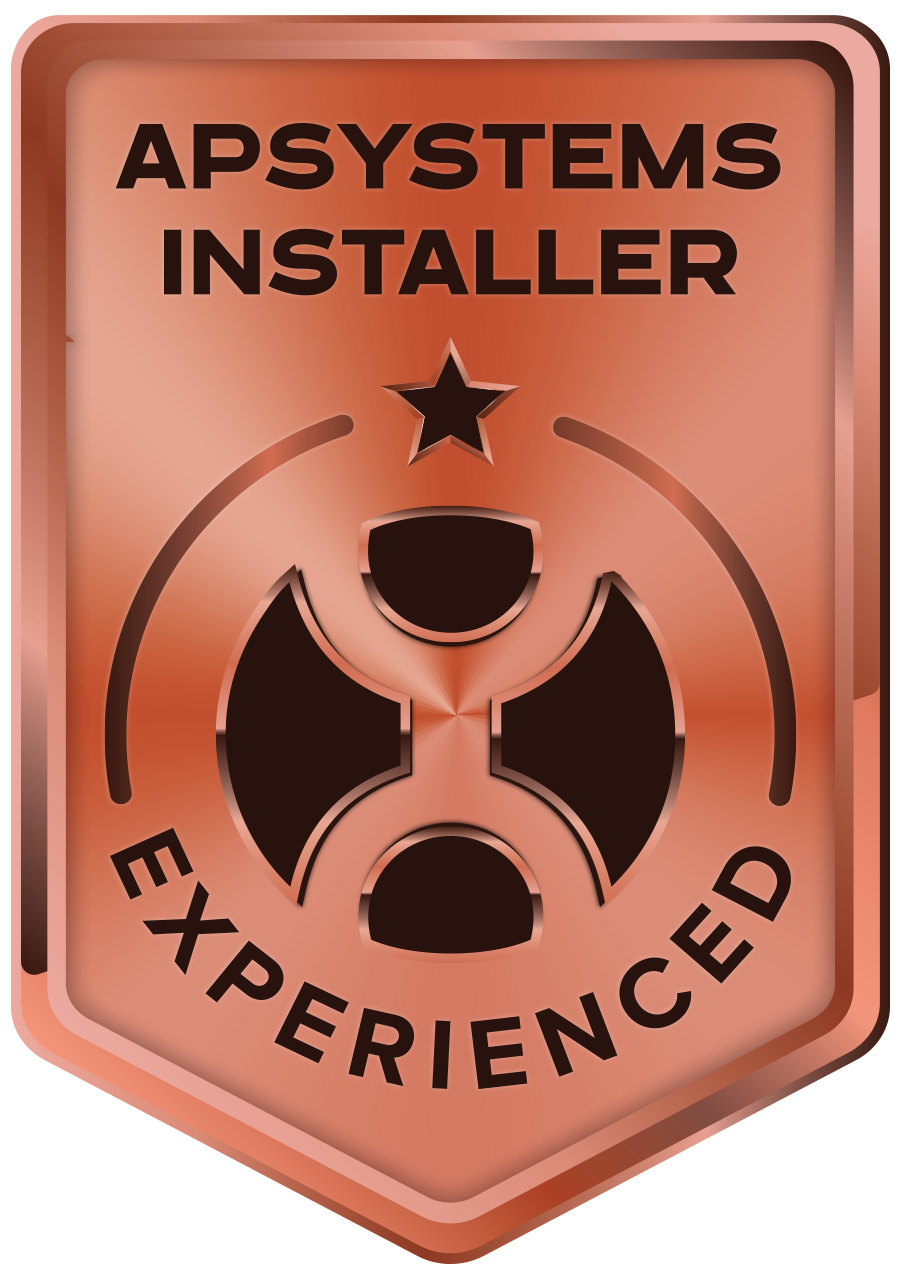Solar Success: Tips to Optimize Your Panel Efficiency
How to optimize energy use of solar panels is a topic of growing interest for homeowners eager to harness the sun's power efficiently. To get the most out of your solar system:
- Maximize sunlight exposure by ensuring proper panel placement and angle.
- Invest in high-quality panels with proven efficiency ratings.
- Schedule regular cleaning and maintenance to keep panels free of debris.
- Use energy monitoring systems to track usage and adjust settings accordingly.
Solar energy offers numerous benefits, from lowering energy bills to reducing carbon footprints. Optimizing the use of solar panels boosts these advantages by enhancing their efficiency, ensuring that you use every ray of sunlight effectively. By adopting smart energy practices, you can make the most of your solar investment, minimize costs, and support a sustainable lifestyle.
I'm Spencer Gordon, CEO of Next Energy.AI, dedicated to making solar energy accessible and effective. My journey in the solar field has been driven by a deep commitment to teaching others how to optimize energy use of solar panels for both savings and environmental impact. I'm here to guide you through this exciting transition to smarter, greener energy.
Understanding Solar Panel Efficiency
Solar panel efficiency is all about how well a panel converts sunlight into electricity. This conversion happens thanks to photovoltaic (PV) cells, which are the heart of solar panels. Let's break it down into simpler terms.
Energy Conversion
PV cells are like tiny solar power plants. They capture sunlight and turn it into electrical energy. This is done through the photovoltaic effect, where sunlight knocks electrons loose in the cells, creating an electric current. The more sunlight a panel can convert into electricity, the more efficient it is.
Photovoltaic Cells
Each solar panel is made up of many PV cells. These cells are usually made from silicon, a common material known for its ability to conduct electricity. The quality and type of silicon used can affect how well a cell performs. For instance, monocrystalline silicon cells are generally more efficient than polycrystalline ones because they are made from a single, pure crystal structure.
Efficiency Factors
Several factors influence solar panel efficiency:
- Cell Type: As mentioned, monocrystalline cells tend to be more efficient. However, they can be more expensive.
- Temperature: Solar panels work best in cooler temperatures. High heat can decrease efficiency, so it's important to consider climate when installing them.
- Shade and Dirt: Even a small amount of shade or dirt can significantly reduce efficiency. This is why regular cleaning and strategic placement are crucial.
- Technological Advances: New technologies are pushing efficiency boundaries. Current panels operate around 20-23% efficiency, but future tech could exceed 46%. This means more energy from the same amount of sunlight.
Understanding these elements is key to optimizing energy use. By choosing the right type of panel and maintaining it well, you can ensure your solar system is running at peak performance. This not only maximizes your energy savings but also supports a greener planet.
Next, we'll explore how to optimize energy use of solar panels through proper installation, maintenance, and monitoring techniques.
How to Optimize Energy Use of Solar Panels
To optimize energy use of solar panels, it's crucial to focus on three main areas: proper installation, regular maintenance, and energy monitoring. Let's explore each of these.
Proper Installation
The first step to maximizing solar panel efficiency is ensuring they're installed correctly. Here are some key points to consider:
- Orientation and Tilt: Panels should be oriented to capture the most sunlight. In the Northern Hemisphere, that typically means facing south. The angle of tilt should be adjusted based on your latitude for maximum exposure.
- Avoiding Shade: Even a small shadow can significantly reduce a panel's output. Ensure panels are placed away from potential obstructions like trees or buildings.
- Professional Installation: Hiring a certified professional ensures that panels are securely mounted and wired correctly, reducing the risk of inefficiencies or damage.
Regular Maintenance
Keeping your solar panels in top shape involves regular maintenance. Here's how:
- Cleaning: Dust, pollen, and bird droppings can block sunlight. Panels should be cleaned regularly, especially in areas with high dust or pollution.
- Inspection: Regularly check for physical damage or wear. This includes looking at the panels themselves as well as the wiring and connections.
- Professional Services: Consider a maintenance plan from a reputable provider like Next Energy.AI. They offer thorough inspections, cleaning, and performance monitoring to keep your system running efficiently.
Energy Monitoring
Monitoring your solar energy system is essential for optimizing its performance. Here's what to focus on:
- Smart Monitoring Systems: Use technology to track your panels' output. This helps identify any drop in performance quickly.
- Energy Usage Patterns: Understanding when and how much energy you use can help optimize consumption. For instance, running high-energy appliances during peak sunlight hours can maximize the use of solar power.
- AI Integration: Advanced systems like those offered by Next Energy.AI use AI to provide real-time insights and recommendations, enhancing your system's efficiency.
By focusing on these aspects, you can ensure that your solar panels are working at their best. This not only boosts your energy savings but also contributes to a cleaner environment.
Next, we'll look at advanced techniques for maximizing solar output using cutting-edge technology and smart solutions.
Advanced Techniques for Maximizing Solar Output
To truly lift your solar panel performance, diving into advanced techniques can make a huge difference. Let's explore how AI technology, smart inverters, and energy storage solutions come into play.
AI Technology
Artificial Intelligence (AI) is revolutionizing solar energy management.
- Adaptive Energy Management: AI systems can analyze your energy consumption patterns and adjust solar energy usage accordingly. For instance, Next Energy.AI integrates AI with solar panels to optimize performance by accounting for weather conditions and seasonal changes.
- Predictive Maintenance: AI can predict when maintenance is needed before issues arise. This proactive approach ensures your system runs smoothly and efficiently.
- Real-Time Insights: With AI, you get real-time data and recommendations to maximize your solar output. This means you can make informed decisions about energy use and maintenance.
Smart Inverters
Smart inverters are a game-changer for solar systems.
- Efficiency Boost: Unlike traditional inverters, smart inverters can convert more solar energy into usable power, increasing overall efficiency.
- Grid Interaction: They allow for two-way communication with the power grid, helping to stabilize voltage and frequency, which is crucial for grid reliability.
- Monitoring Capabilities: Smart inverters provide detailed monitoring of your solar system, allowing you to track performance and quickly identify any issues.
Energy Storage Solutions
Storing solar energy for later use is key to maximizing its benefits.
- Battery Storage: By storing excess solar energy in batteries, you can use it when the sun isn't shining. This increases your energy independence and reduces reliance on the grid.
- Peak Shaving: Use stored energy during peak demand times to save on electricity costs. This strategy is particularly beneficial in areas with high energy rates during peak hours.
- Backup Power: Energy storage solutions provide backup power during outages, ensuring a continuous energy supply.
By leveraging these advanced techniques, you can significantly improve your solar panel system's output and reliability. This not only maximizes your energy savings but also supports a sustainable future.
Next, we'll dig into the environmental and economic benefits of optimized solar panels, highlighting how they contribute to a greener planet and cost savings.
Environmental and Economic Benefits of Optimized Solar Panels
Optimizing solar panels isn't just about boosting efficiency—it's about reaping significant environmental and economic rewards. Here's how:
Reduced Carbon Footprint
Solar panels are champions of clean energy. By optimizing their efficiency, you contribute even more to reducing harmful emissions. Unlike fossil fuels, solar panels produce electricity without releasing carbon dioxide, sulfur dioxide, or nitrogen oxides. As noted in a SmartCitiesDive article, increased solar panel use helps combat smog and acid rain, leading to cleaner air in urban areas.
Cost Savings
Switching to solar energy can significantly cut your electricity bills. Optimized solar panels ensure you get the most out of every ray of sunlight, translating to more savings. According to Nerdwallet, homeowners can reduce their monthly power costs by about 50% with solar panels. Plus, many states offer buyback programs for excess energy, which can further lower or even eliminate your electricity costs.
Energy Independence
With optimized solar panels, you gain more control over your energy needs. By producing your own power, you reduce reliance on the grid, protecting yourself from fluctuating energy prices and potential outages. As highlighted in PwC's research, on-site solar installations provide utility budget stability and reduce carbon emissions, making them a smart choice for achieving energy independence.
By focusing on these environmental and economic benefits, you're not just saving money and energy—you're investing in a sustainable future. Next, we'll address frequently asked questions about solar panel optimization, providing you with the knowledge to make the most of your solar investment.
Frequently Asked Questions about Solar Panel Optimization
What factors affect solar panel efficiency?
Several factors play a role in solar panel efficiency. The most important is the quality of the photovoltaic cells. Higher quality cells convert more sunlight into electricity. Panel orientation and tilt also matter. Panels should face true south in the Northern Hemisphere and be angled based on your latitude to capture maximum sunlight. Shading from trees or buildings can drastically reduce efficiency, so panels should be placed in a location with minimal shade.
Temperature impacts efficiency too. Solar panels are more efficient in cooler temperatures. Dust and dirt can block sunlight from reaching the panels, so keeping them clean is essential. Finally, the age of the panels can affect performance. Over time, panels may degrade and produce less electricity.
How often should solar panels be cleaned?
Regular cleaning is key to maintaining solar panel efficiency. Dirt, dust, and bird droppings can block sunlight and reduce energy production. In general, panels should be cleaned at least once a year. However, if you live in a dusty area or near trees, more frequent cleaning might be necessary.
A professional cleaning service, like the one offered by Next Energy.AI, ensures thorough cleaning without damaging your panels. They also provide inspections to catch any potential issues early.
Can AI improve solar panel performance?
Absolutely! AI technology is changing solar panel optimization. AI systems like those from Next Energy.AI provide real-time monitoring and analytics, helping you get the most out of your solar investment.
AI can predict weather patterns to optimize energy use and storage, and it offers personalized tips to adjust energy consumption based on your habits. It can also integrate with smart home systems to automatically adjust settings for maximum efficiency. By using AI, you can improve your solar panel performance and increase your energy savings.
Conclusion
At Next Energy.AI, we're committed to leading the way in AI-improved solutions for solar energy. Our approach transforms traditional solar panels into intelligent energy management systems that optimize energy use, reduce costs, and support a sustainable future.
Our AI technology continuously analyzes energy consumption patterns, weather forecasts, and solar production to ensure your panels operate at peak efficiency. This means you get the most out of every ray of sunshine, maximizing both environmental and economic benefits. By integrating with smart home systems, our solutions provide a seamless experience, enhancing convenience and control over your energy usage.
Choosing Next Energy.AI means investing in a future where energy is cleaner, smarter, and more efficient. Our AI-improved systems not only reduce your carbon footprint but also offer significant cost savings, contributing to energy independence. We are proud to serve Northern Colorado and Southern Wyoming, providing custom solar solutions that meet the unique needs of our community.
To learn more about how our AI technology can transform your solar experience, visit our services page. Let's power the future together, one solar panel at a time.
